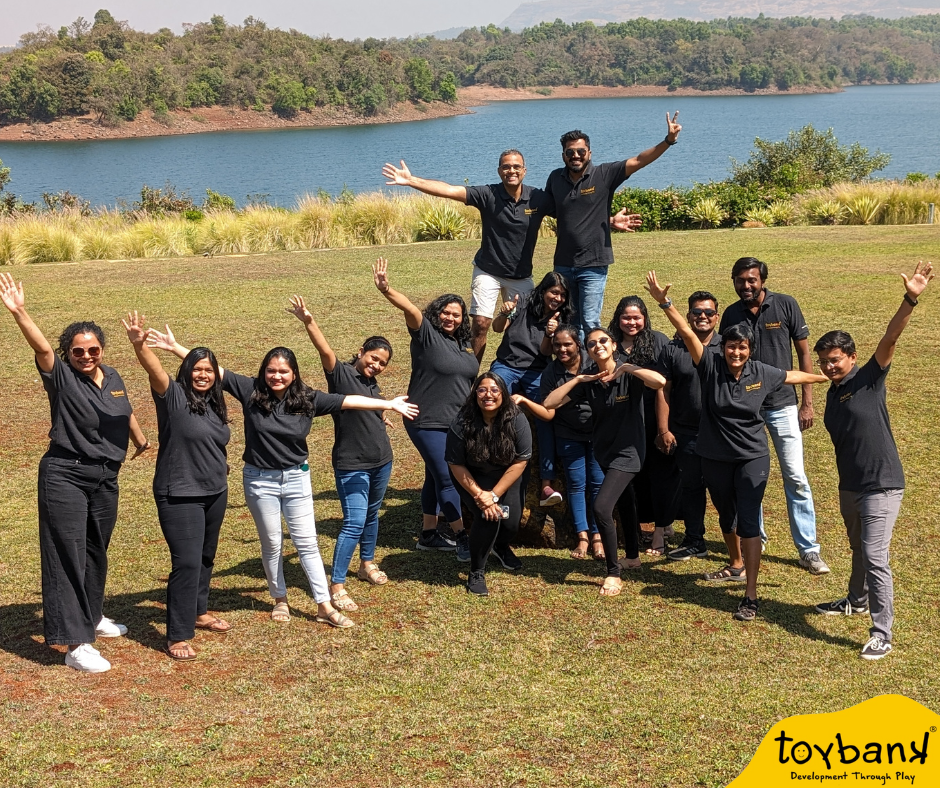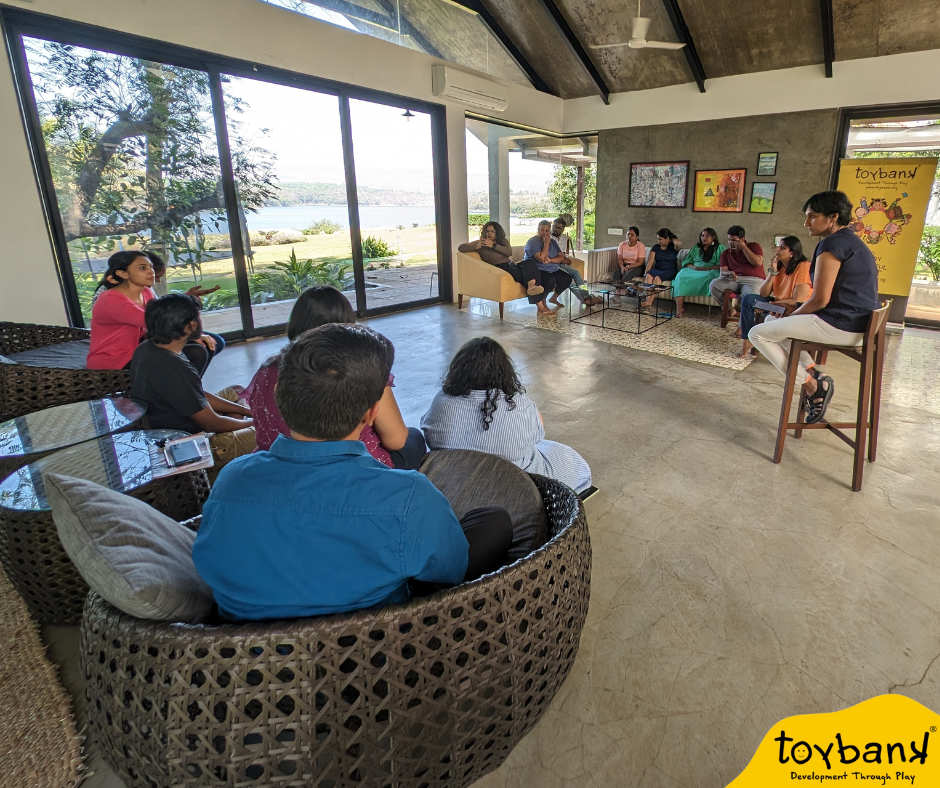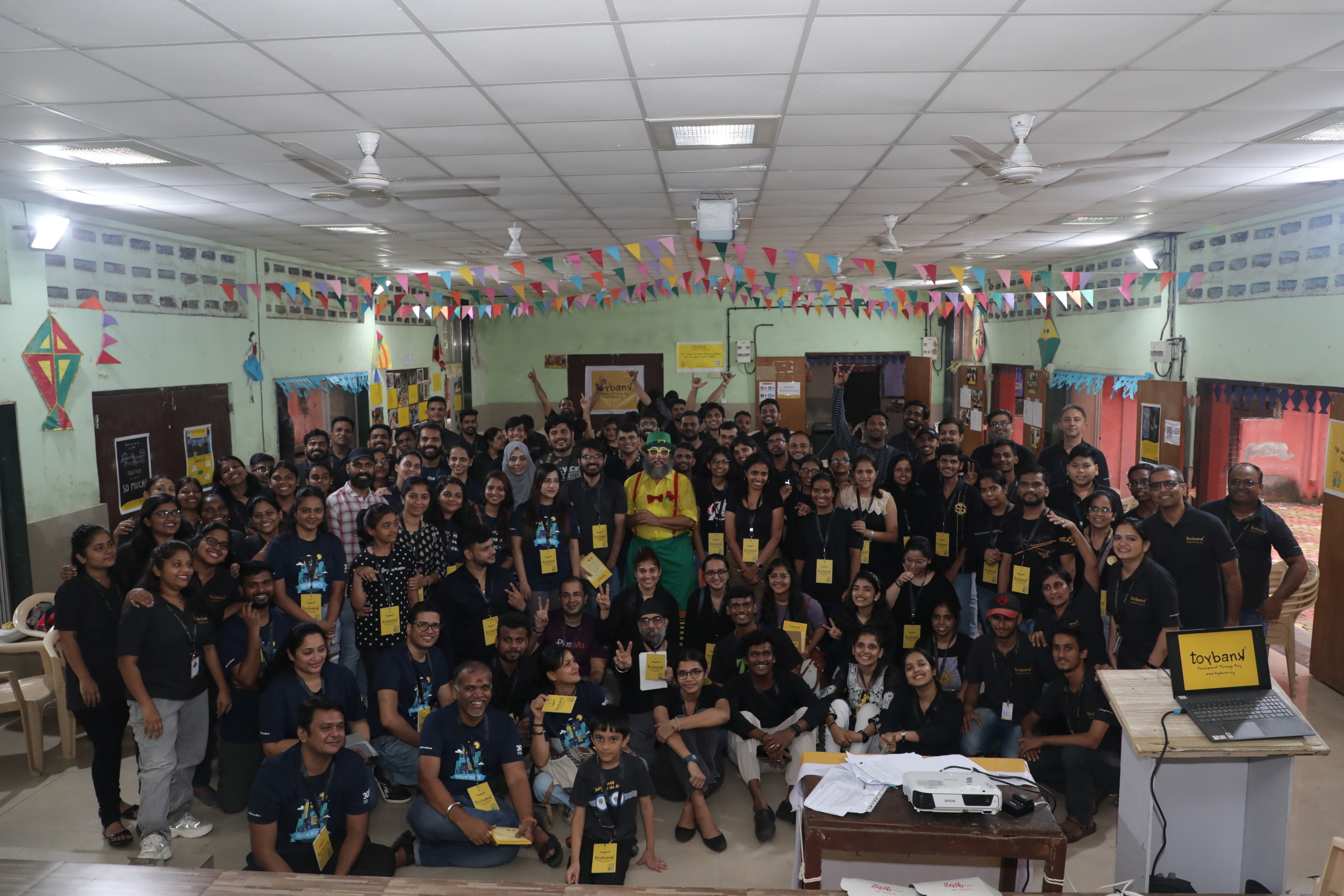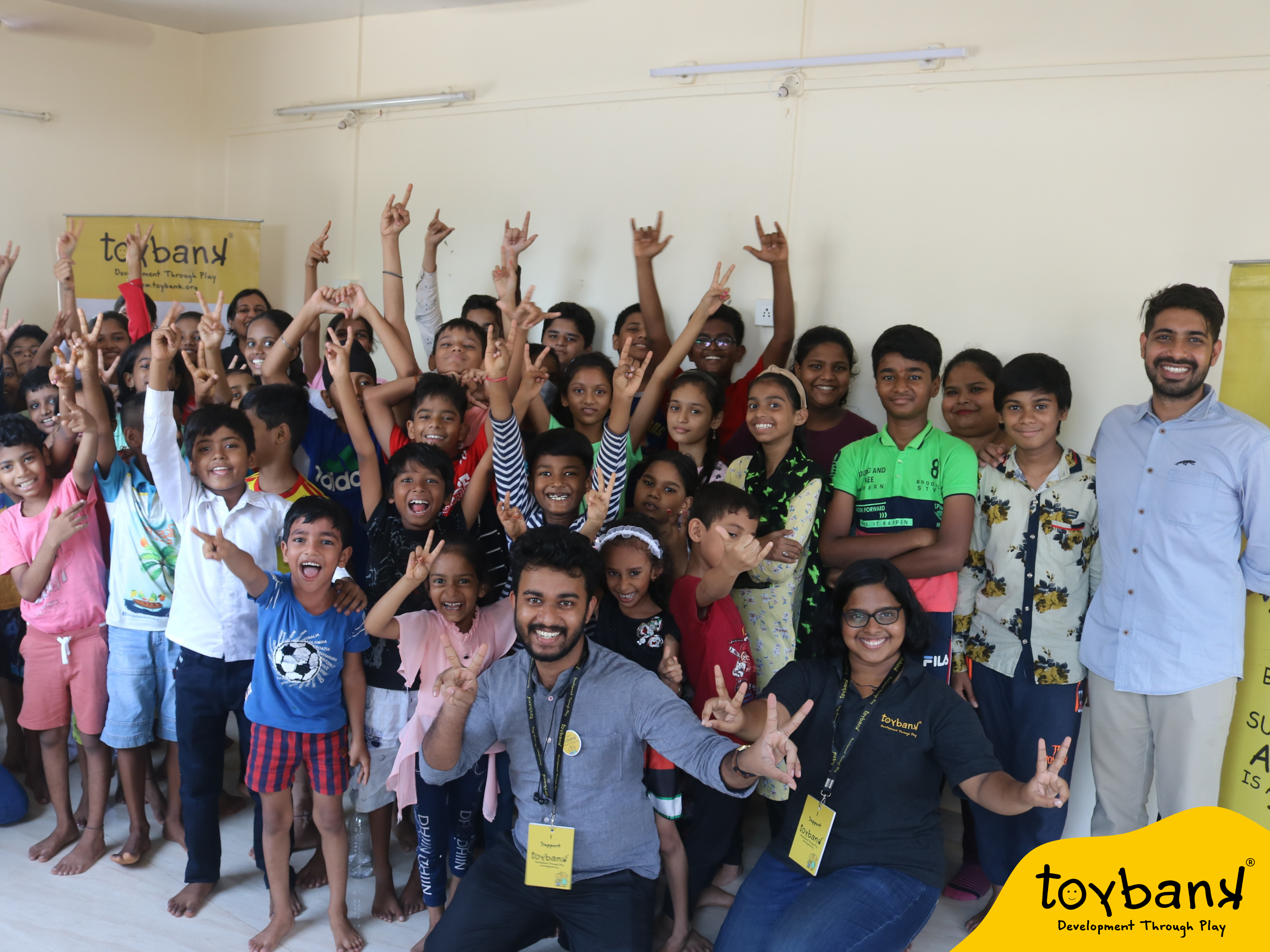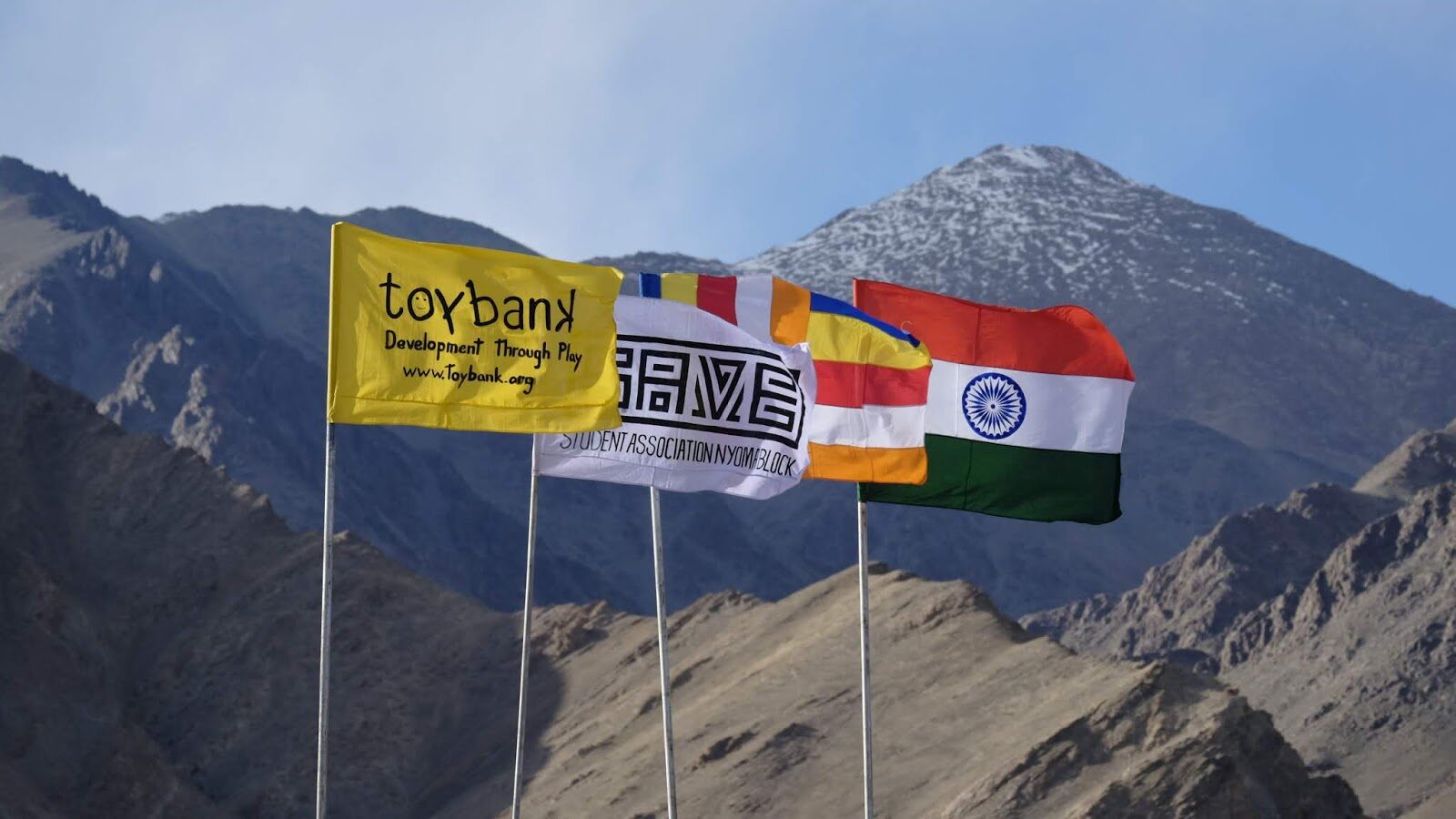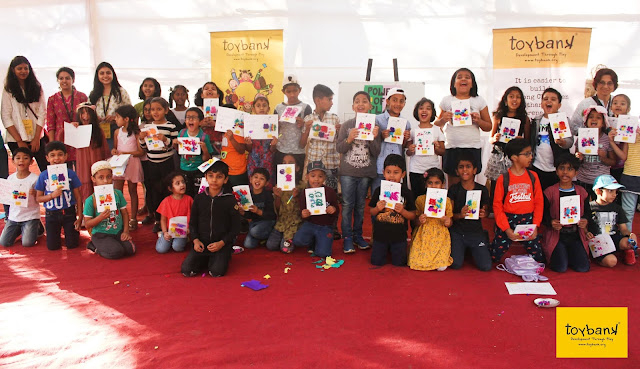Category: EVENTS
Spirit of volunteering: Toybankers talk about Play, why volunteering is essential
Our volunteers help us spread the message of Power of Play, while having a playful time themselves. They support us in play sessions and help us make them accessible to more children. Through the years, this support has helped us take play to more children.
On World Volunteering Day, we asked a few of them about their experience so far and how being part of the cause has changed their perception of Play. Here’s what they had to say:
Play must not be a reward after studies, but part of daily education
Volunteering with Toybank has helped me reconnect with my childhood. It has inculcated in me qualities of patience, resilience and empathy and also helped me understand the importance of play. I now realise that play should not always be a reward after studies, but should be inculcated throughout the school day, as it is extremely educational. Volunteering can help us make a difference and put a smile on childrens’ faces, while playing with them and helping them learn simultaneously.
Kriya
Play is a crucial tool for fostering creativity
Through Toybank’s play sessions, I have realised the power of play in the lives of children, especially those from marginalised communities. I have witnessed firsthand the positive impact it has on their development and well-being. I always thought play was a simple, recreational activity, but I now understand that it is a crucial tool for fostering creativity, social skills and emotional growth in children. By volunteering with Toybank, we can all be part of children’s development.
Rhea
Every play session teaches you something new
Toybank’s Conscious Play™ approach is what drew me to the organisation. Volunteering has not only introduced me to the struggles faced by those from marginalised communities, but also the importance of Play in providing holistic development to a child’s mind. My perception of Play has gone past an object of entertainment – to me, Play can also be a way for people to learn, socialise and develop. Volunteering at Toybank is different, as one will always learn something new from every child and every play session.
Arav
Play helps children focus better
I used to think that play was a time outside studies, but volunteering with Toybank has changed my perception of it. I was not very confident of teaching and guiding children during play sessions really helped me. I have played multiple games with children, thus helping them build skills of collaboration, independence, thinking and reflection. Play is a time when children can forget about the rest of the world, and just focus on the puzzle they are solving or the board games they are playing.
Diva
Volunteering has helped me achieve personal growth
Volunteering at Toybank has been a transformative journey, rooted in the belief that every child has the Right to Play. The essence of why I volunteer here is to witness the profound impact of play in shaping young minds. Toybank, an NGO championing play, resonates with me deeply, as it not only advocates for the joy of play, but recognises its pivotal role in a child’s holistic development. My journey with Toybank has reinforced the urgency for more individuals to volunteer with them. Through volunteering, one not only contributes to creating a positive impact but also experiences personal growth. It’s an opportunity to witness firsthand the transformative potential of play in shaping the future generation.
Tishaa
Volunteering allows me to give and receive fun experiences
Encouraging children to learn concepts in a fun and engaging manner helps develop their future understanding, as they are more likely to retain the information they learn if they can associate it with positive experiences and learning opportunities. Volunteering with Toybank has allowed me to tailor learning to children’s interests, as I haven’t necessarily played in a very long time. It provides me with the opportunity to both give and receive fun experiences in conjunction with the children.
Amit
Volunteering taught me the ability to interact, teach
Toybank’s idea is unique and what drew me to them is its interactive nature of the idea about playing games with young children and the ability to shape their minds. Volunteering has taught me the ability to interact and teach, while being caring and helpful. Play has subsequently changed my outlook on the way games can be used to increase the ability of learning in children. It has strengthened the idea that people should volunteer here so they, too, can get a perspective on the way play and games can be integrated into a child’s learning process
Dev
Play is a powerful tool for education and emotional well-being
Spending time with children during play sessions allows me to make a meaningful impact in the lives of children from vulnerable communities. By attending play sessions, I have learned that play is not just a form of entertainment; it’s a crucial part of a child’s development. It has taught me the importance of providing these children with opportunities to learn, grow, and simply enjoy their childhood. Volunteering with Toybank has changed my perception of play by showing me how it serves as a powerful tool for education and emotional well-being. It’s not just about having fun; it’s about fostering creativity, social skills, and resilience in these kids who may face various challenges in their lives.
Krisha
Play for Transformation: Toybank roundtable discussion
“In India, the per capita of games, toys or sports-related products on a single child does not cross $3 a year, as opposed to $300-400 in the US”
— Vivek Jhangiani, Toybank Advisory Board Member & CEO, United Toys
Lack of urban planning and parents encouraging children to play are other issues preventing the mainstreaming of Play.
A little drama on World Play Day
There is freedom in being playful and fun and not caring about what people think. This overall freedom adds to the positivity and fun and makes one feel light.
– Shaun Williams, Acting Coach and Toybank workshop curator
On the hot and humid day of 28th May, amidst the sweltering heat of Mumbai, a palpable sense of excitement filled the air as Team Toybank headed to celebrate World Play Day. The teachers from Toybank’s partner, SHARE, eagerly awaited the children at the community centre located inside the one of the serpentine bylanes of the Golibaar neighbourhood in Santacruz East, Mumbai. Soon, a teeming crowd of children surrounded Shaun Williams, the actor and drama coach, who was leading our curated World Play Day drama workshop.
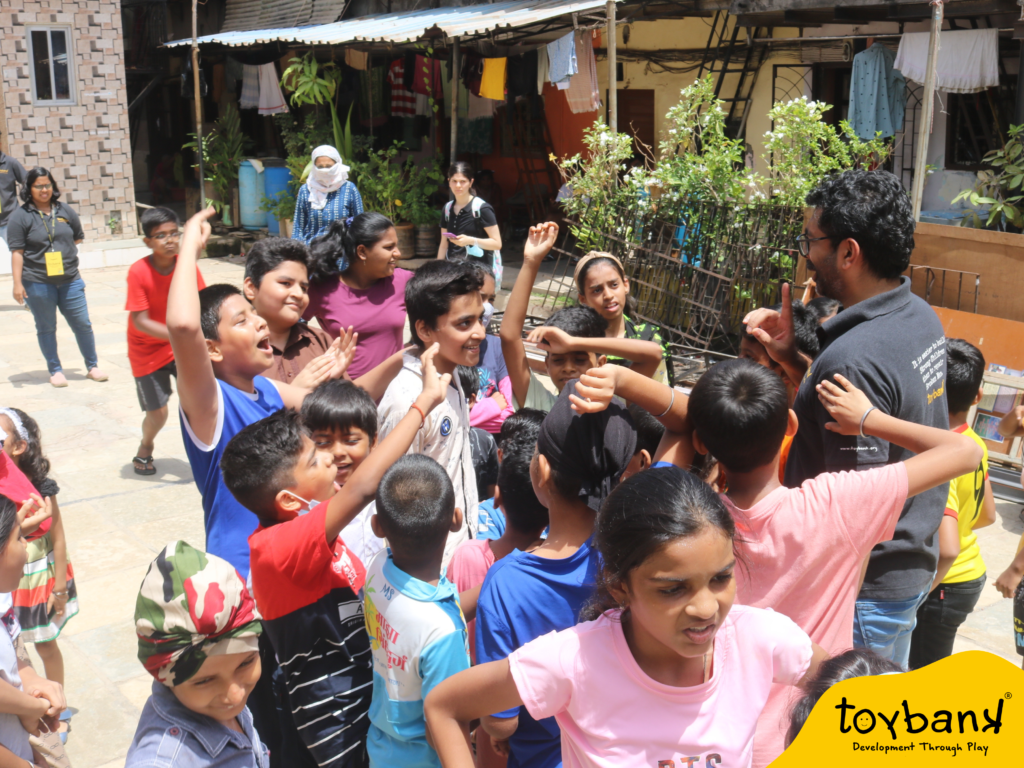
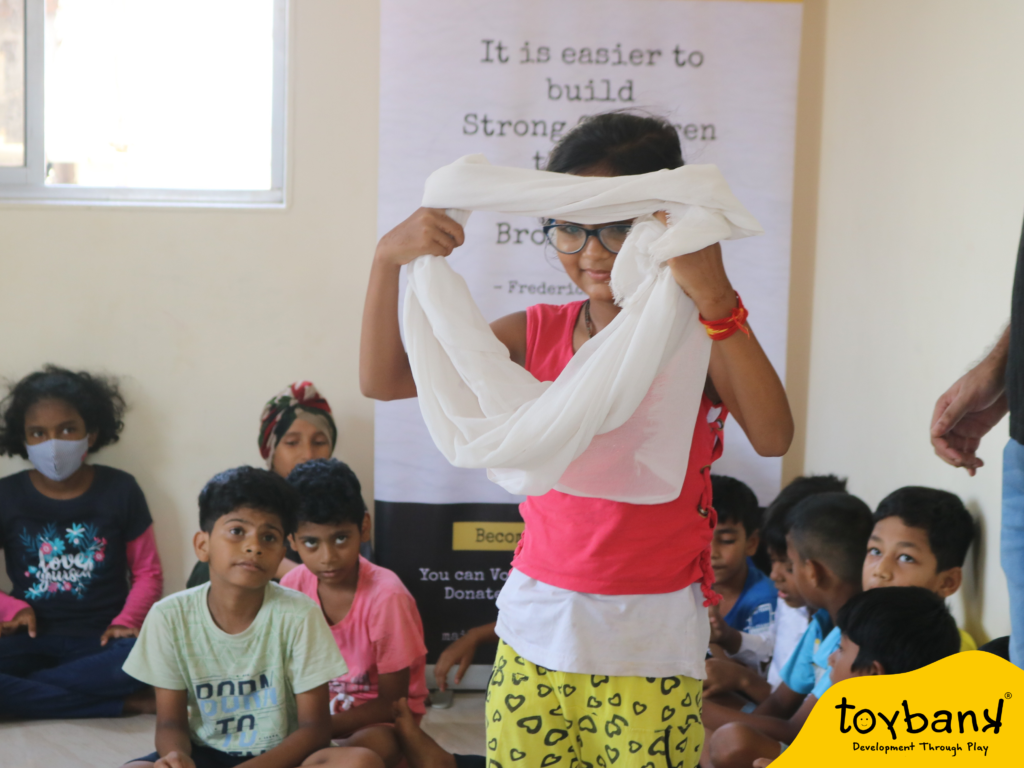
After brief introductions, Shaun engaged them with questions ranging from pop culture to their favourite songs and games. And so began a round of fun vocal exercises through imitation of animal sounds and enactments of everyday activities like eating a sandwich or an ice cream. The short ice-breaker helped the children overcome their initial hesitation and dive into the ongoing playful engagements. As minutes passed, they could not wait to show their best ghost or lion impressions to Shaun.
The children made a circle as they sat on the floor. They intently focussed their attention as Shaun challenged them to get agile with a quick standing up and sitting down game. He first made a mixed group of all the children and divided the kids into two groups. Each group took turns and walked around the room as Shaun instructed them to double up their pace or lessen it by half the speed. While walking, they enacted eating a chocolate or a sandwich through their gestures. Sometimes they imagined that the floor was flowing with lava. Children were seen jumping around in glee and spontaneously acting out scenarios that evoked a range of emotions, like admiring a flower or reacting to a cockroach near their feet.
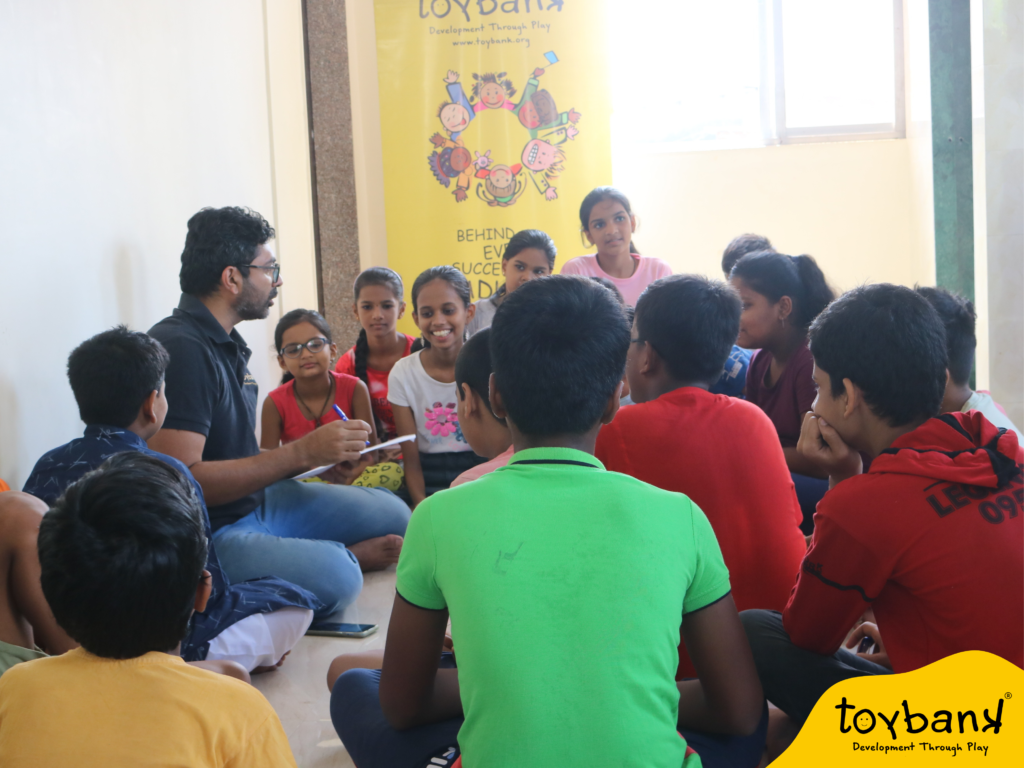
They were further divided into smaller groups of six and asked to use their bodies to showcase a flower, a car, a plane, or spell three letter words together. The kids surprised us all with their imaginative depictions. They worked as a team, strategically placing themselves, some pretending as if they were driving cars and bikes.
Even with the sun blazing, the children enthusiastically played in a large, open quadrangle. Shaun taught them many versions of Lock and Key, one remarkably had the catcher tap and ‘lock’’ as many players as they could, while the untapped ‘free’ players would try to ‘unlock’ their fellow mates by crawling through their feet. Another version had kids acting out a zombie apocalypse, where if touched, they would turn into zombies and start turning others one too. The kids loved enacting the dramatic metamorphosis into zombies.
These games invigorated the children, the sweltering heat did not matter, nor did the hot ground – there were only giggles, laughter and some zombie squeals that echoed. After this exhausting exercise, the children went back into the room, still laughing, and were instructed to hydrate and rest for five minutes. But even within those five minutes, they began playing games amongst themselves and the Toybank Team. Shaun then instructed them to lie down and guided them through calming exercises and meditation to soothe them while engaging their imagination.
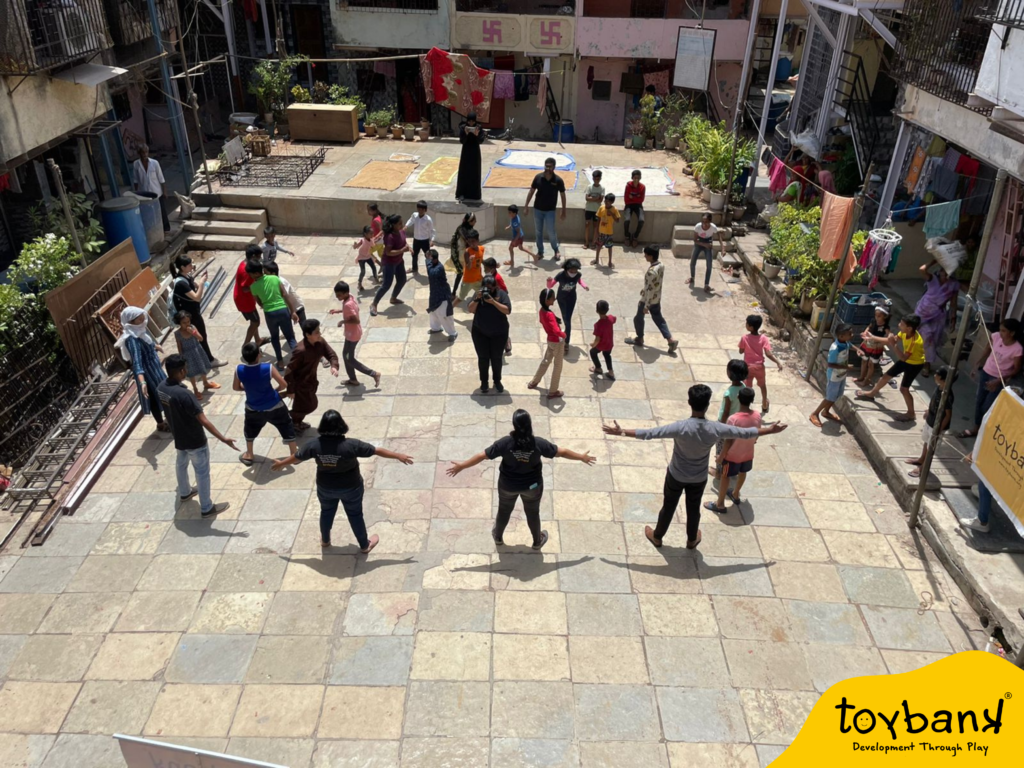
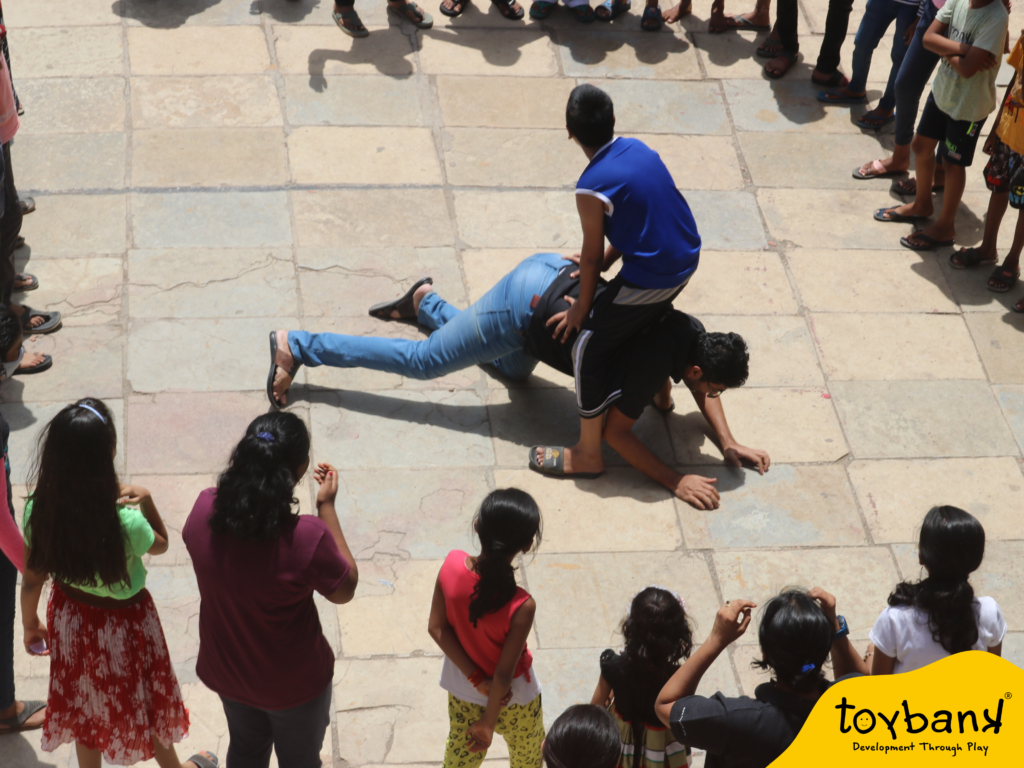
After the kids seemed rested, they were again asked to sit in a circle and use a dupatta as anything but the dupatta. As an example, Shaun folded the dupatta and used it as a phone. Almost immediately the kids came up with ideas, using the piece of cloth as a steering wheel, a bike handle, headgear, as a skipping rope. Even more fascinatingly, they used it to make jackets which the children laughingly said that they learnt from ‘Five Minutes Craft’ on YouTube. Post this, a group of boys decided to present a play where they showed interactions with the police and a young boy caught speeding.
At the end of the session, this is what our workshop curator Shaun had to say: “I had a good time with the kids because I get to be a kid and be silly with them. There is freedom in being playful and fun and not caring (about what people think). This overall freedom adds to the positivity and the fun and makes one feel light. Play makes life a little more bearable and you become happy. You can be nice to other people that would make them happy and this chain reaction would cause everyone in the world, in theory, to be happy.”
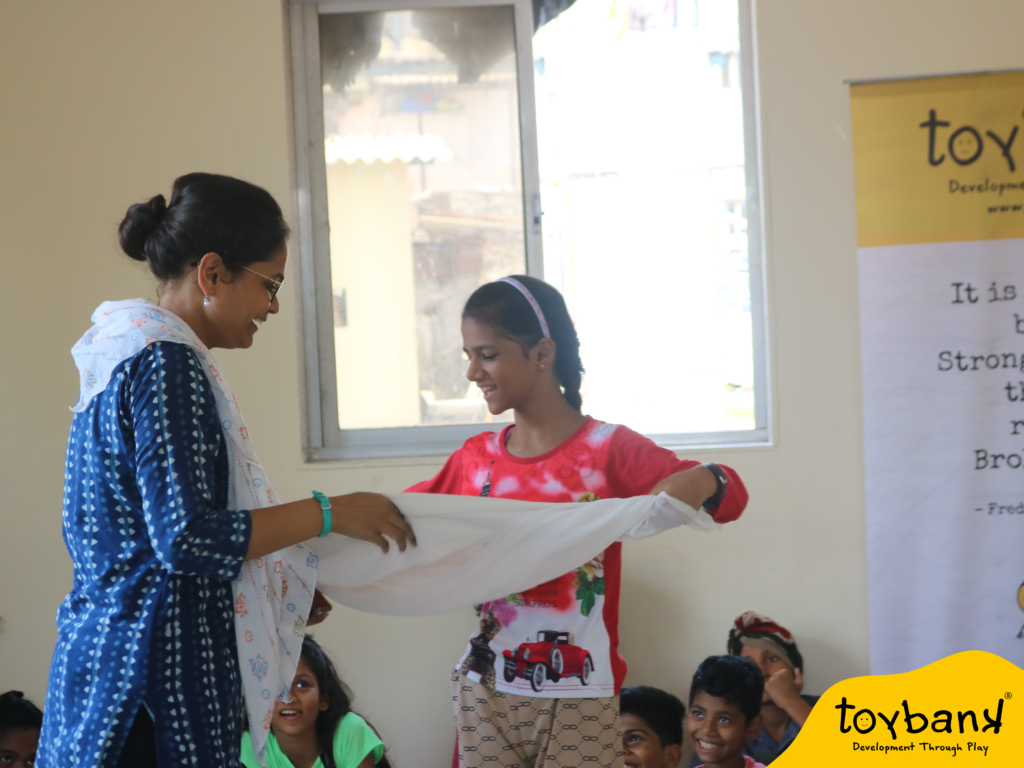
It was great to see how the kids enjoyed the session and promised to not only come for more sessions but also get all their friends to join in too. This session highlighted the importance of physical play sessions. During this workshop, there were no electronics used showing the children that they can have fun and creatively express themselves through physical play sessions. The workshop made them think out of the box. In fact, the kids were sad as the session came to an end.
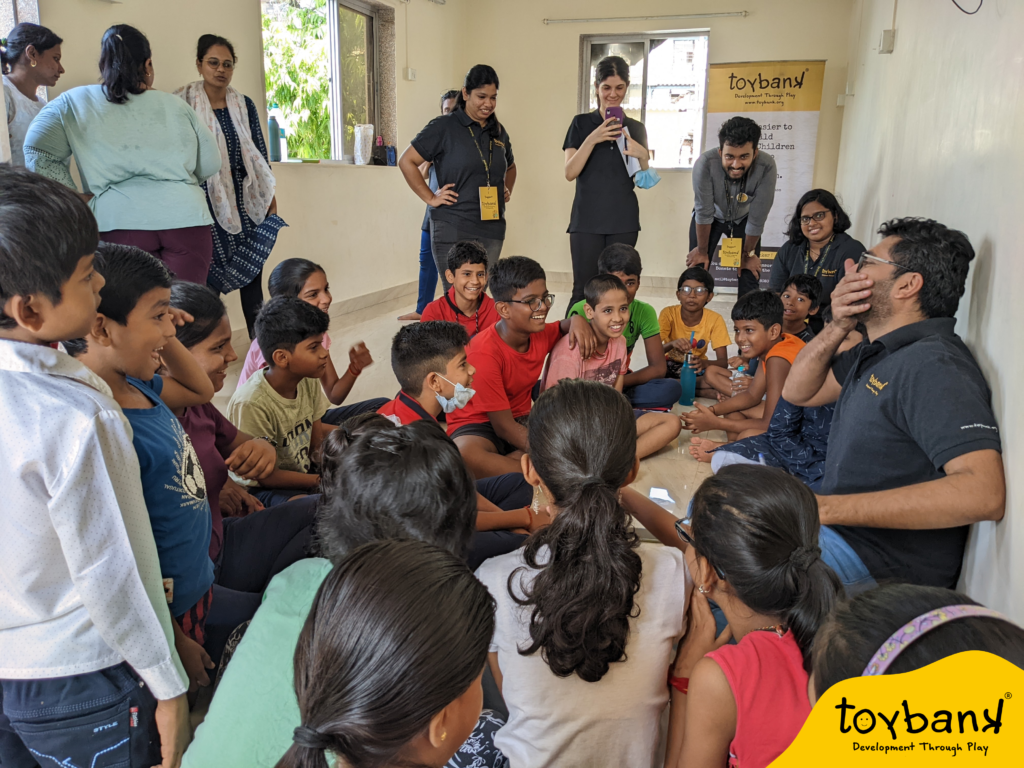
In today’s time when children’s favourite games are played mostly on phones, it is important to show how playing with each other without glaring at screens can be even more fun. This drama workshop helped them to develop their social and creative skills through play.
By Shanaya Dastoor
Football Tournament at Changtang, Ladakh
A scelerisque purus semper eget duis at tellus. Lobortis scelerisque fermentum dui faucibus in ornare quam viverra orci. Elementum sagittis vitae et leo duis ut diam quam nulla.
Joining the dots of Play at Kala Ghoda Arts Festival 2020
Toybank’s workshop was dotted with fun activities and games at the Kala Ghoda Arts Festival 2020. As we promoted the importance of play, sticking to this year’s theme of ‘Dots’, children indulged in ‘Join the Dots’, card making and ‘Dots and Boxes’. Preparations for the event jump back a few weeks, as team Toybank created activities that would be enjoyable, give the kids something to take back home and lead to learning something new.
Our first activity was Joining the Dots to complete a picture and filling it in with crepe paper pellets for color. Each child spent time selecting shades to use and patterns to design. The arena was filled with laughter and squeals. Little Vanshika pointed to her design and exclaimed, “Me and my friend that I play with!”
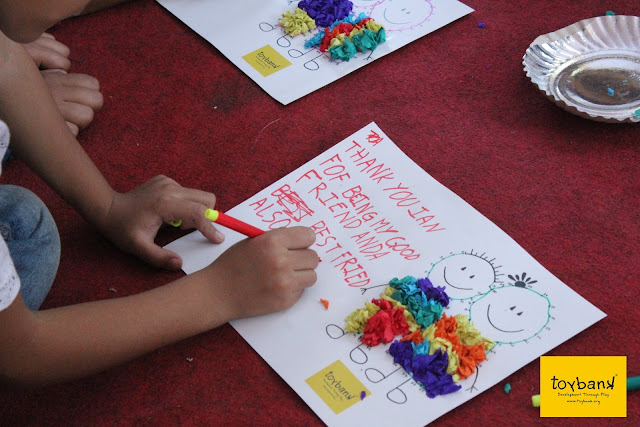
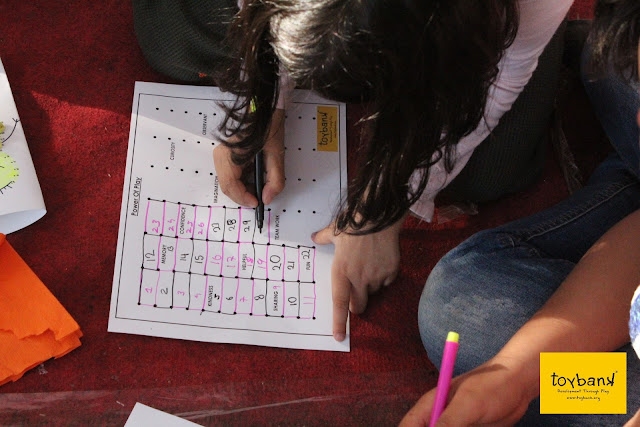
One of the upshots of play is self-expression and confidence to share your feelings. The second part of this activity was making a card and writing a letter to the person we enjoy playing with. While most tots wrote to their friends from school or parents, a girl wrote a letter to her pets for playing with her and another to herself because she likes to play alone. Turns out, this activity served a deeper purpose when one of the kids wrote a letter to say sorry to her ‘bestest’ friend — and favorite person to play hide-and-seek with — as they had fought. This proves that play evokes accepting one’s mistake. We do hope they’ve made up and start playing together again.
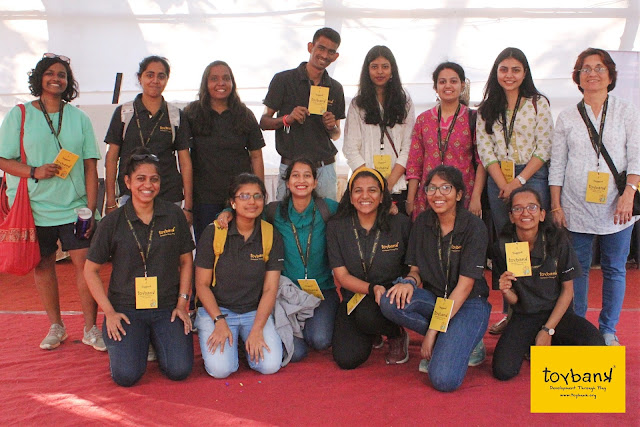
Here’s also a shout-out to the kiddo who chose all shades of pink to color his drawing! We love gender stereotypes being shattered and play being the medium. But we were thrilled to learn that the colour was an unusual choice only for us and not him, as his favourite hues are red and pink.
The children also played ‘Dots and Boxes’, with 4 children in each group. Interestingly, kids reacted differently to the same game. Play invoked a sense of healthy competition as well as fostering a bond where you allow a complete stranger to win so that you are better friends at the end of the experience.
Not just the children but we also made merry. The little ones kept us pumped up with their mad energies. So much so that one kid didn’t want to leave because he was having so much fun!







